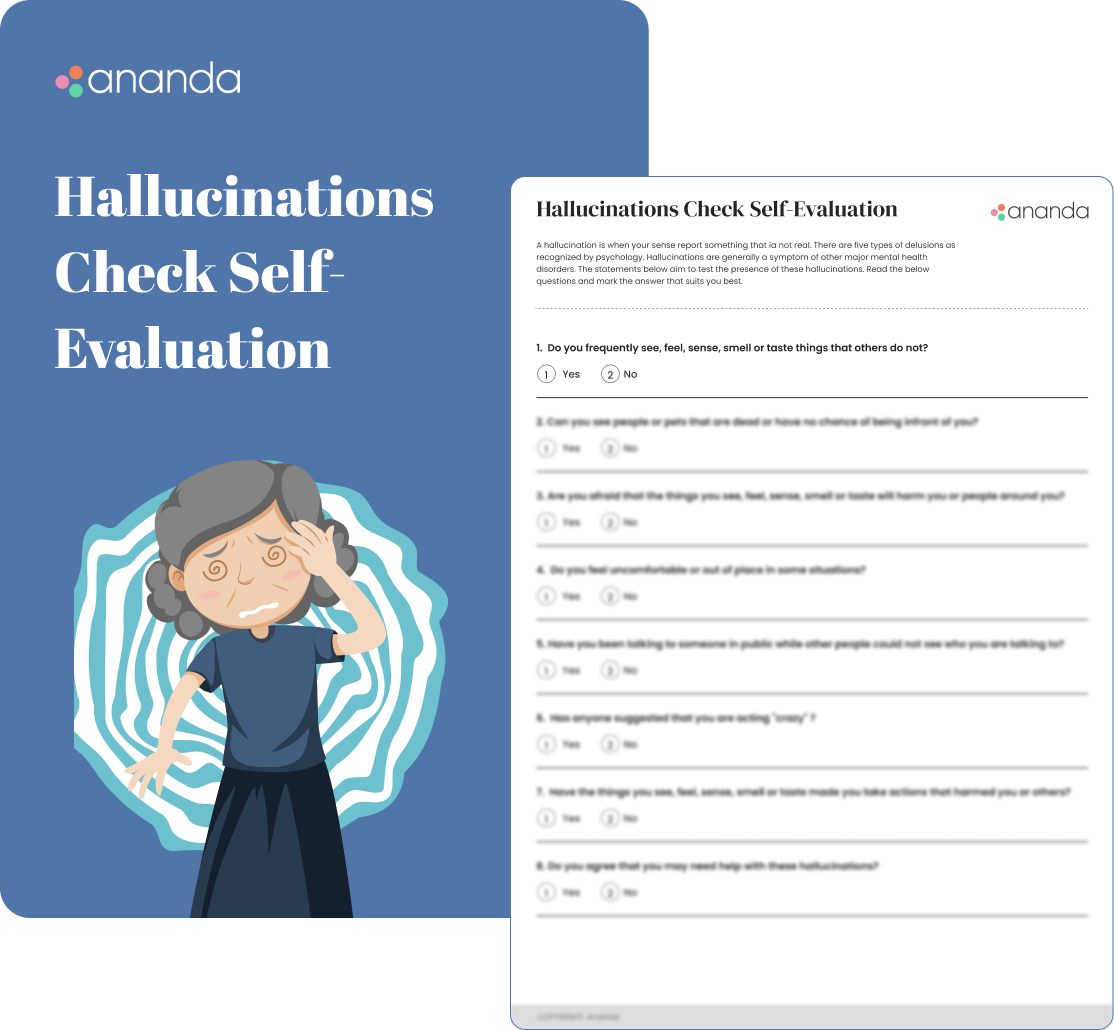Hallucinations Check Self-Evaluation
The Self-evaluation method is used to rate oneself on the basis of the score obtained on the test and to analyze the situation critically and act on it. This method will help individuals to honestly evaluate their strengths, and weaknesses and get to know themselves better.

Download "Hallucinations Check Self-Evaluation"
The Hallucinations Check Self-Evaluation is a short 8-item assessment wanting to measure your hallucination levels and trying to understand your mental health condition to the best.
Hallucinations are sensory experiences that appear real but are created by your mind. They can affect all five of your senses and are a common feature of schizophrenia, bipolar disorder, and dementia but can also occur as a result of extreme fatigue or bereavement. People who abuse drugs or alcohol are also more likely to experience hallucinations, particularly if they try to withdraw too quickly from the substance they are addicted to.
Severity of Hallucinations – Mild, Moderate, High
It will help you better understand your mental health condition.
The evaluation will help you gain insight into your emotions and work on them.
Frequently Asked Questions
The Hallucinations Check Self-evaluation is a hallucinations assessment that will make you aware of your hallucination levels and its severity. This self-evaluation will give you a better understanding of the symptoms of hallucinations if you have any. It will also give you insights into any issues that you are facing at the moment and to seek help for them.
The biggest advantage of this measure is that it gives you an overview of your mental well-being in general and whether you need to reach out to a mental health professional to seek help and guidance. Along with this, it will give you an insight into the physical as well as emotional signs and symptoms.
Once you have taken the evaluation and answered all the questions, you will be required to score yourself for each answer and get a total score as per the instructions given below the test. Your total score will determine the severity of the hallucinations that you may be facing. You can then proceed to book a session with Ananda if you feel so!
If you suspect your perceptions about reality are unreal, do contact your nearest mental health professional to the earliest to understand your symptoms in depth and get an accurate diagnosis of the issue faced after which they might redirect you a doctor to perform a physical examination such as brain tests like EEG or electroencephalogram to check for unusual patterns of electrical activity in your brain.
In stage one, the person may begin to experience a sense of anxiety, loneliness, or guilt that can cause them to focus obsessively on thoughts that will relieve those feelings. Then, anxiety is felt to a greater degree than in stage one and the individual prepares to listen to the hallucination. During the final stage, the individual starts to experience anxiety at a higher level wherein they might start hearing voices and actually experience a full-blown hallucination.
Some of the most common hallucinations are auditory hallucinations which involve someone speaking to a person or telling them to do certain things, visual hallucinations which involve seeing things that aren’t there. The other possible types of hallucinations are gustatory hallucinations, olfactory hallucinations, and tactile hallucinations.
Visual hallucinations involve seeing things that aren’t there. The hallucinations may be of objects, visual patterns, people, or lights. For example, the person might see another person who’s not in the room or flashing lights that no one else can see.
A hallucination typically lasts for about 12 to 18 months. They can take the form of simple, repeated patterns or complex images of people, objects, or landscapes.
